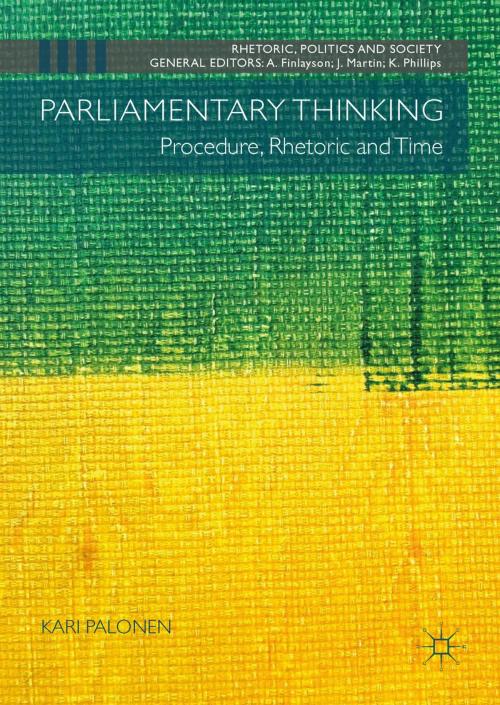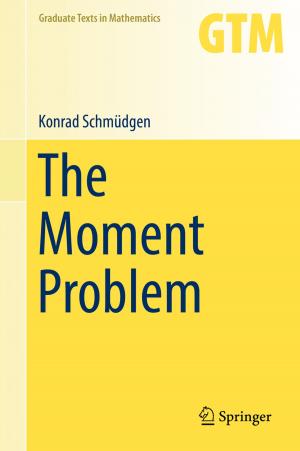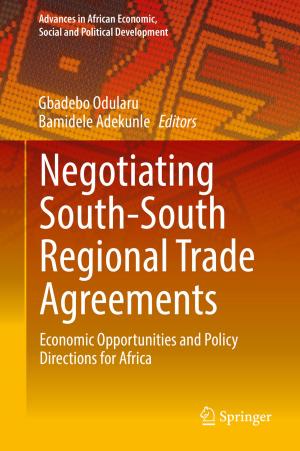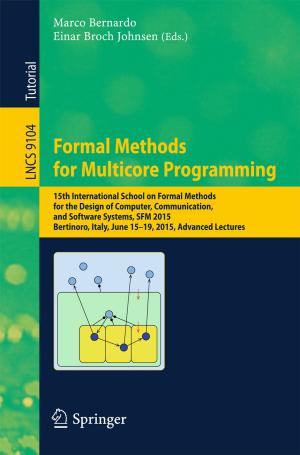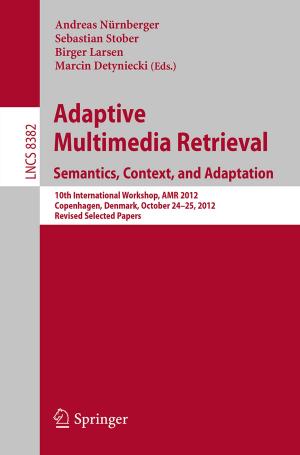Parliamentary Thinking
Procedure, Rhetoric and Time
Nonfiction, Social & Cultural Studies, Political Science, Government, Democracy, Politics, History & Theory| Author: | Kari Palonen | ISBN: | 9783319905334 |
| Publisher: | Springer International Publishing | Publication: | July 5, 2018 |
| Imprint: | Palgrave Macmillan | Language: | English |
| Author: | Kari Palonen |
| ISBN: | 9783319905334 |
| Publisher: | Springer International Publishing |
| Publication: | July 5, 2018 |
| Imprint: | Palgrave Macmillan |
| Language: | English |
The parliamentary style of politics has been formed over centuries; nobody theorised it in advance. This book presents a thought experiment to spell out key principles of the parliamentary ideal type of politics. Max Weber offers the main intellectual inspiration, Westminster parliament provides the main historical reference and the author’s studies on parliamentary procedure and rhetoric provide the background for the book. Parliamentary acting and thinking offer us the best example of politics as a contingent and controversial activity. Using a parliamentary imagination, the author constructs the ideal type in five main chapters: dissensual modes of proceeding; rhetoric of parliamentary debate; parliamentary formation and control of government; parliamentarians as politicians; and parliamentary time as their common subtext. In the last two chapters, the book outlines the possibilities of extending parliamentary judgment to politics beyond parliaments proper and the chances for parliamentary politics succeeding today.
The parliamentary style of politics has been formed over centuries; nobody theorised it in advance. This book presents a thought experiment to spell out key principles of the parliamentary ideal type of politics. Max Weber offers the main intellectual inspiration, Westminster parliament provides the main historical reference and the author’s studies on parliamentary procedure and rhetoric provide the background for the book. Parliamentary acting and thinking offer us the best example of politics as a contingent and controversial activity. Using a parliamentary imagination, the author constructs the ideal type in five main chapters: dissensual modes of proceeding; rhetoric of parliamentary debate; parliamentary formation and control of government; parliamentarians as politicians; and parliamentary time as their common subtext. In the last two chapters, the book outlines the possibilities of extending parliamentary judgment to politics beyond parliaments proper and the chances for parliamentary politics succeeding today.
